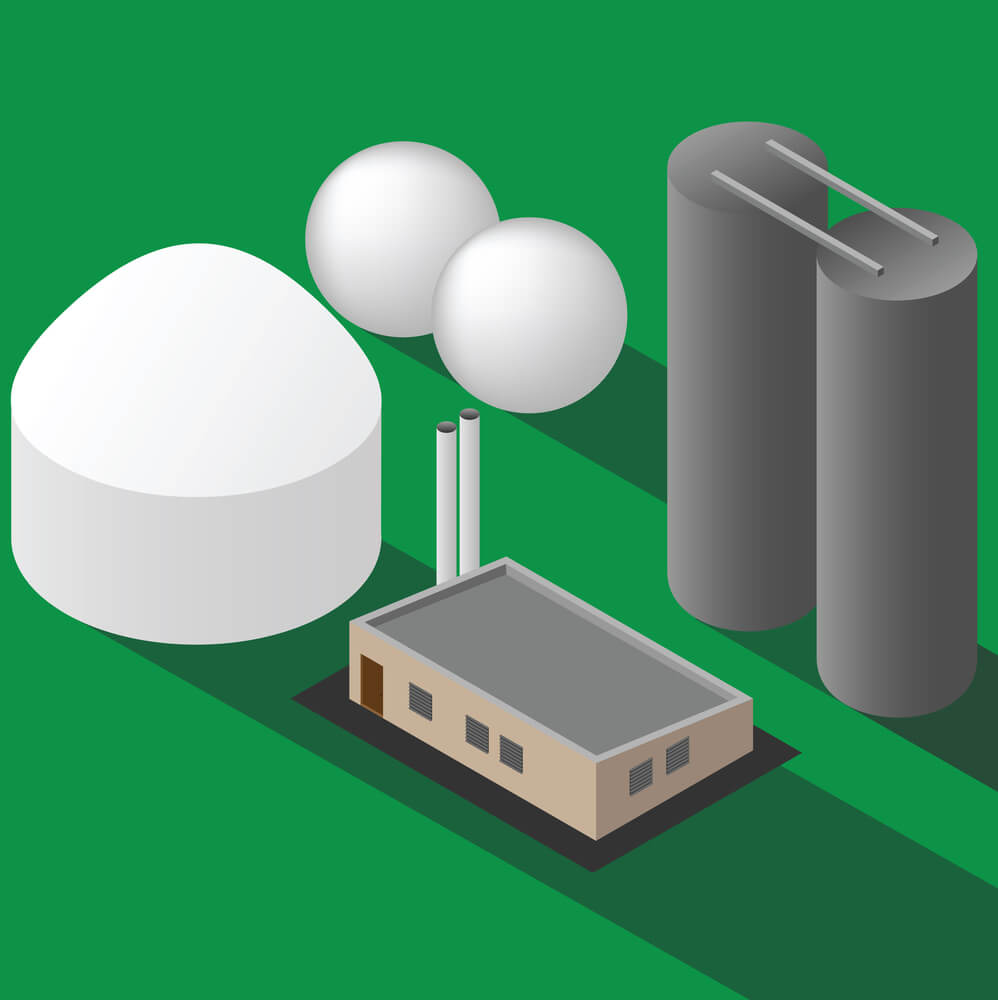When you think about energy and electricity, it has probably crossed your mind that natural gas isn’t the only option available.
There are multiple different kinds of renewable energy sources, but one that is becoming increasingly popular to talk about is biomass energy.
As our environment is starting to face the consequences of natural gas, we need to determine if there is a better way to supply energy.
Biomass energy not only has less impact on the environment, but it also costs less than natural gas.
There have been many debates on whether biomass is a better alternative for creating electricity than natural gas.
When it comes to our environment, biomass is a much better option than natural gas. Some of the reasons why include that it is a renewable source of energy, better for the environment, and less expensive than natural gas.
What is Biomass Energy?
Biomass energy uses solar energy that has been put in biomass as chemical energy.
It is created with photosynthesis, which is naturally occurring with all plants.
Biomass is a renewable energy, meaning it is an infinite resource that we don’t have to worry about running out of in the future.
Advantages of Biomass
There are so many benefits to using biomass as a form of energy and electricity.
It is safer for the environment than natural gas, a renewable energy source, less expensive to operate, and relieves us of our reliance on natural gas.
Environmentally Friendly
One concern that has been debated about biomass is how environmentally friendly it is.
Since it has the potential to release carbon dioxide into the environment as it produces, this clearly raises concerns for people.
This is actually nothing to be concerned about, as even though carbon dioxide is released into the environment, it is captured right back up by plants when they go through photosynthesis.
When this happens, it is taking away one of the biggest concerns about this new energy source, making more people interested.
It is also said that biomass can help clean our environment. Since our population is always increasing, so is the waste that needs to be disposed of.
There are several cases where this waste ends up in places that it shouldn’t, like water or woods. This waste can be used to aid the production of biomass instead.
Always Available
Another reason biomass energy is better than natural gas is because it is always available.
Biomass is infinite, meaning it will never run out. It can be generated anywhere at any time to create energy for the entire world.
Biomass is created with the help of plants, making it a renewable energy source.
As long as there are plants on the planet, we will be able to generate biomass and keep using it as a renewable energy source.
Carbon Neutral
Biomass is considered a carbon neutral energy source.
This energy is created through photosynthesis and releases the same amount of carbon dioxide that the plants absorb during the cycle.
This means that there is no carbon dioxide being released into the environment that isn’t already accounted for by photosynthesis.
Being carbon neutral also reduces the greenhouse gases that are released into the environment.
Compared to fossil fuels, biomass releases a minuscule amount of greenhouse gases into the environment.
Reduces Our Reliance on Natural Gas
We are currently so reliant on natural gas that we fear nothing else will work the same.
This is dangerous because natural gas is finite and will run out quicker than we can believe. Natural gas also has a negative impact on the environment.
If we can reduce the amount of natural gas that we use to keep our environment running, we can improve the current state of the Earth.
We will experience less pollution in the air and less carbon dioxide in the environment if we make the switch to biomass.
Less Expensive
One of the biggest reasons biomass is better than natural gas is that it is less expensive to operate.
Fossil fuels require oil drills, fuel collection, and pipelines. Biomass doesn’t need any of this extra stuff, making it much more affordable.
No Threat to Forests
Since biomass needs plants to generate, leading some people to believe that our forests are at risk.
However, biomass doesn’t have any impact on our forests because it is most successfully generated from crops, not trees.
It doesn’t make any sense environmentally or economically to go around chopping trees down when it won’t make any difference.
Where Does Biomass Stand in Our Future?
Biomass can easily jump from producing 4% of the energy of the United States to 20%.
It can give small property owners the ability to make extra income by simply maintaining the crops that are on their land.
It can be expensive for property owners to maintain land that doesn’t have anything on it.
This is why you will often see property owners separating their land and selling it off to other people.
If they were to generate biomass in this open land, their land would then work for them, produce energy, and make them a decent amount of money.
Doing so will convert the biomass into energy to power the electricity of society. It also ensures that more people have a stable and efficient source of income, saves manufacturing jobs, and energy that can be used in the long-term, not just the short-term.
Summary
We are getting closer and closer to running out of natural gas every single day.
We must find a sustainable replacement that is better for the environment and easier to produce. Luckily, biomass is an energy source that can help us do this.
Biomass energy is considered to be better than natural gas because it is renewable, less expensive to manage, can create jobs for small landowners, and is much better for the environment.
Any carbon dioxide that is created during the process of making biomass is soaked right back up into plants as they go through photosynthesis. This makes it carbon neutral and much better for the environment.



